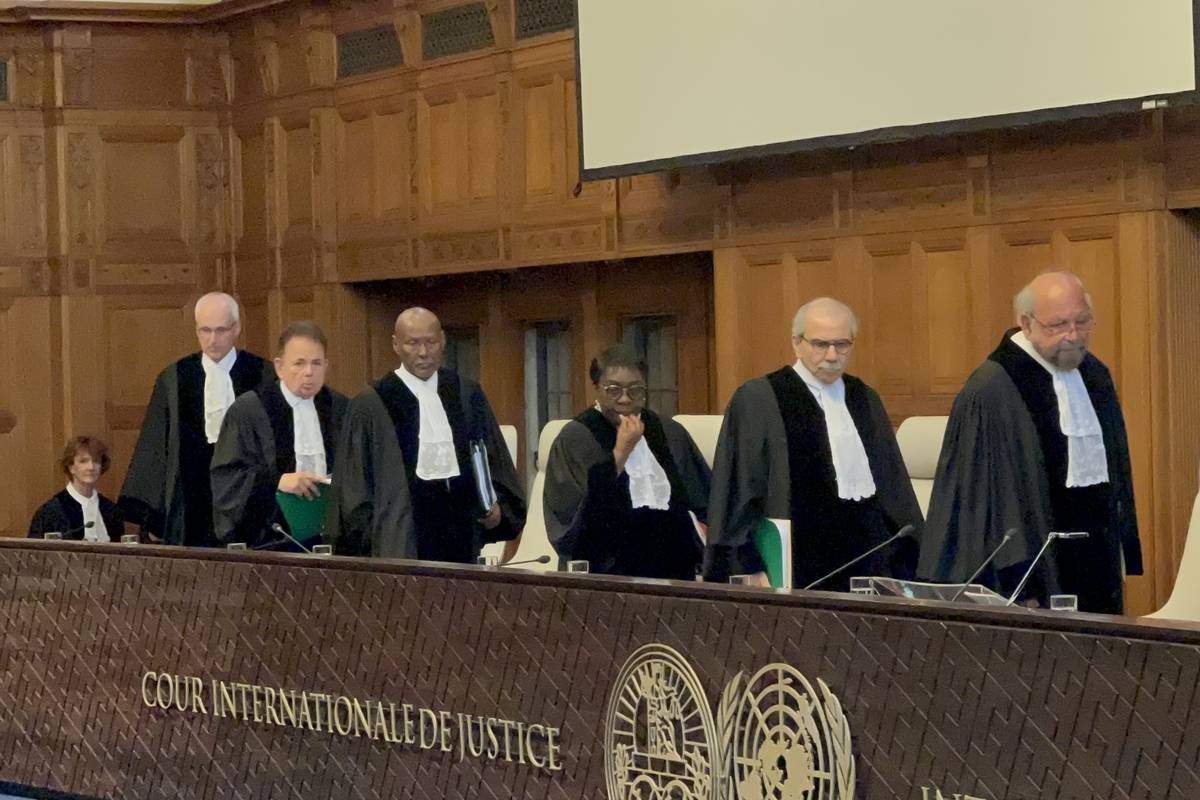A Landmark Ruling: The ICJ's Condemnation of Israel's Occupation of Palestinian Territories
International International NewsPosted by pallavi on 2024-07-22 04:50:54 |
Share: Facebook | Twitter | Whatsapp | Linkedin Visits: 84

In recent developments, the International Court of Justice (ICJ) has issued an advisory opinion on Israel’s occupation of Palestinian territories. This opinion declares Israel's actions unlawful, highlighting the extensive human rights violations and discriminatory practices against Palestinians. The opinion, considered a historic moment for Palestinian rights, demands significant changes to Israeli policies and calls for international intervention to ensure compliance with international law.
Historical Context and Advisory Opinion:
The ICJ’s advisory opinion builds upon a historical context of ongoing conflict and legal scrutiny regarding Israel's actions in the Occupied Palestinian Territories (OPT). This follows a 2004 ICJ advisory opinion that similarly condemned the construction of a separation wall in the OPT, finding it contrary to international law.In its latest ruling, the ICJ concludes that Israel’s occupation and annexation efforts in the West Bank, East Jerusalem, and Gaza are illegal. This is grounded in the violation of numerous international laws and treaties, including the Fourth Geneva Convention and various United Nations resolutions. The court describes Israel’s policies and practices as forms of racial segregation and apartheid, violating the rights and dignity of the Palestinian people.
Human Rights Violations:
The ICJ’s opinion meticulously documents the range of human rights violations committed by Israel in the OPT. These include:
Home Demolitions and Land Expropriation: Palestinians face systematic demolition of their homes and seizure of their lands, often to expand Israeli settlements, which is deemed illegal under international law.
Restrictions on Movement: Severe limitations on Palestinian freedom of movement, through checkpoints and barriers, restrict access to essential services, employment, and education.
Resource Access: Palestinians suffer from limited access to critical resources such as water, healthcare, and agricultural land, exacerbating humanitarian conditions in the territories.
Violence and Intimidation: The ICJ highlights the frequent violence and intimidation faced by Palestinians, including military operations and settler attacks, contributing to a climate of fear and instability.
Call for Action:
The advisory opinion calls for Israel to immediately cease its illegal occupation and withdraw from the occupied territories. It also demands the end of settlement expansion and the dismantling of existing settlements. The blockade on Gaza is highlighted as a critical issue, with the ICJ urging its removal to allow for the free movement of people and goods between Gaza and the West Bank.The ICJ underscores the role of the international community in enforcing these recommendations. It calls for countries and international organizations to hold Israel accountable and ensure compliance with international legal standards. This includes possible sanctions and diplomatic measures to pressure Israel into adhering to its legal obligations.
International Reaction and Implications:
The ICJ’s ruling has garnered significant international attention and mixed reactions. Supporters of Palestinian rights view it as a pivotal step towards justice and accountability. They argue that it reaffirms the international community’s responsibility to protect human rights and uphold international law.Conversely, Israeli officials and their allies have criticized the opinion, labeling it biased and politically motivated. They argue that the ICJ lacks the jurisdiction to intervene in what they consider a political dispute rather than a legal matter. Despite this, the advisory opinion remains a powerful statement, likely to influence future diplomatic and legal efforts concerning the Israeli-Palestinian conflict.
Search
Categories
Recent News
- Drug Bust Uncovers Medical Students' Ganja Network
- Drug Scandal Shocks Telangana's Medical Community
- Bihar's Medical Marvel: 10kg Tumour Extraction Saves a Life
- Adobe's Firefly: Unlocking Creative AI for Paid Users
- Defence Giant HAL's Shares Plummet Amidst Fighter Jet Competition
- Apollo Tyres Gears Up for India's Cricket Journey
- Drug Scandal: BRS Leader's Kin Questioned, Released
- Dreamliner Radar Glitch Grounds Delhi-Bound Flight